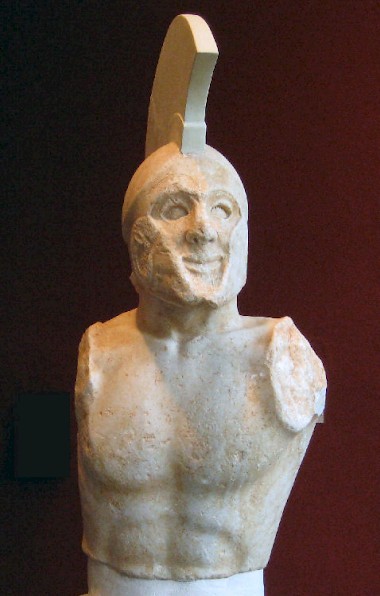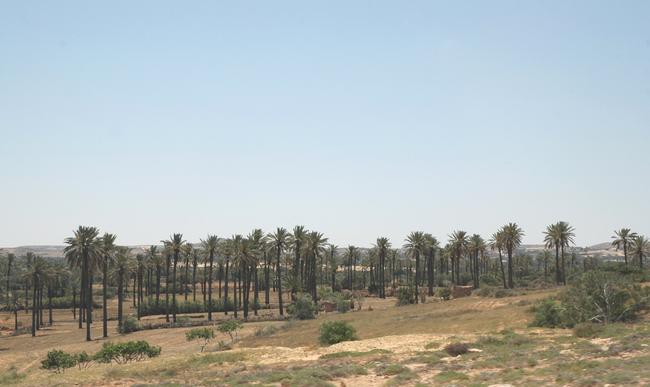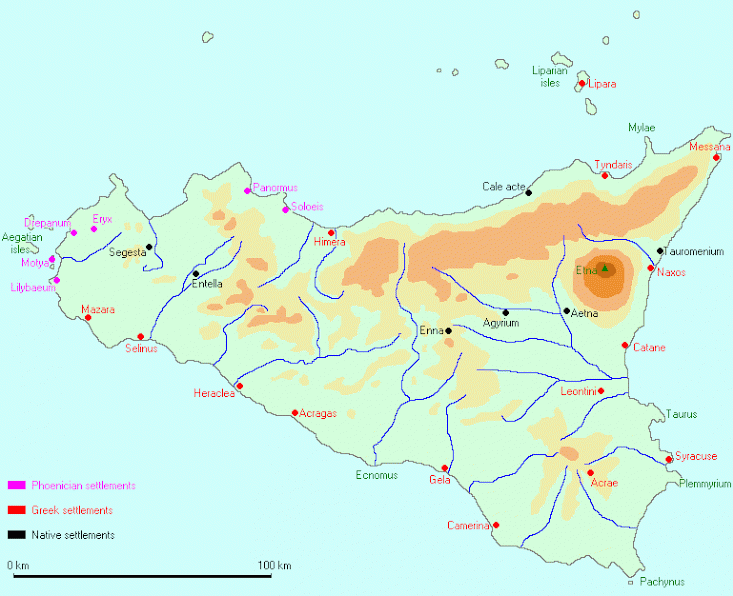Dorieus
Dorieus (†510 BCE): Spartan prince from the Agiad dynasty, leader of two unsuccessful colonial adventures.

According to the Greek researcher Herodotus of Halicarnassus, Dorieus was a Spartan prince from the Agiad dynasty.note His father was Anaxandridas II, who ruled from c.560 to c.520. His queen could not have children, and therefore, the Spartan magistrates suggested their king to remarry, in order to procure a son. And so it happened. Anaxandridas took a second wife, who gave birth to a boy called Cleomenes. Unexpectedly, his first wife became pregnant too, and three boys were born: Dorieus, Leonidas, and Cleombrotus. This is, at least, the story of Herodotus, but it is likely that he is repeating a tradition that is hostile towards Cleomenes and denied that he was born from the king's first and most important marriage.
However this may be, Cleomenes became king in c.520 and turned out to be an energetic ruler, who often broke with conventions and ruthlessly pursued his aims. For example, he decisively defeated Argos and expelled the tyrant Hippias from Athens.
According to Herodotus, Dorieus was a proud man and could not stand to be in the shadow of Cleomenes - a madman, according to Herodotus. Therefore, he asked the Spartans to be send abroad to found a colony in northern Africa. The truth may be that Cleomenes, whose horizon was larger than that of any other Spartan leader of his age, was behind this plan. It must be noted that the Spartan intervention in Africa is contemporary with an attempt by king Arcesilas III of Cyrene, also in Libya, to enlarge his powers. Was Dorieus supposed to support Arcesilas or his opponents? Or were the Spartans benefiting from the weakness of Cyrene?

So, Dorieus and other Spartans set out to the south, and founded a new town near the river Cinyps (Wadi Qaam) in what was is now Libya, in 515/514. Their city was not the first Greek settlement in the area, but the native nomadic tribes did not appreciate their presence so far west from the other Greek towns. The native population joined forces with the Carthaginians, and expelled the Spartans in the third year of their stay in Africa. Dorieus returned home.

Two years later, in 510 BCE, there was a second attempt to found a colony. This time, Dorieus was to go to the far west, to a place called Heraclea on Sicily. Unfortunately, the site cannot be identified, but there are tow possibilities:
- There was a Greek town named Heraclea Minoa, "king Minos' city of Heracles", in the southwestern part of the island. As we will see an instant, this town played a role in the Spartan adventures, and Diodorus of Sicily was confident that this was the right place.note
- However, the story by Herodotus suggests another location, not far from a native town called Segesta and close to mount Eryx in the westernmost part of Sicily. This location may originally have been a Carthaginian settlement, because the Carthaginian god Melqart ("king of the city") was often identified with the Greek demigod Heracles.
Herodotus was already aware of conflicting reports about Dorieus' trip to the west. At that very moment, a war was being waged in southern Italy between the inhabitants of two Greek cities, Sybaris and Croton, and in 510, Sybaris was sacked. Herodotus tells that the surviving Sybarites blamed Dorieus for helping the Crotoniates, and adds that the latter denied having received Spartan help.
However this may be, Dorieus reached Sicily and moved to Heraclea. Here, he encountered an alliance of Segestans and Carthaginians, was decisively defeated, and lost his life. One of his adjutants, Euryleon, managed to regroup the survivors, and became master of a Greek town called Heraclea Minoa. From here, he attacked another Greek city, Selinus, and expelled its tyrant Peithagoras. However, now that Euryleon's power was rising, he became dangerous and was killed by the Selinuntines he had liberated.
This was the end of the Spartan intervention in Sicily. The future belonged to native Sicilian leaders like Hippocrates of Gela and Gelon of Syracuse. The age of colonialism was over.
Dorieus had a son named Euryanax, who was second in command during the Battle of Plataea (479) and had the suggestive nickname "the wandering king".